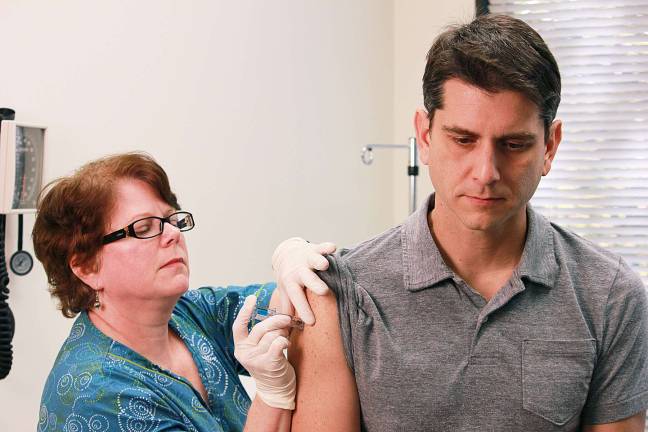Confronting flu season

Last year, the headlines were all about Zika; the year before, it was Ebola. But there is a far worse threat looming — a virus that, on average, kills more people each and every year than have ever died of Zika or Ebola. In New York City alone, for the past several years, it has caused the deaths of as many as 2,200 New Yorkers annually, including 6 children last year.
You may be thinking, why haven't I heard about this virus before? But you have. This killer is influenza.
While the majority of influenza-related deaths occur in persons older than 65 years of age, youth doesn't protect you from the flu. Influenza can hit some young people particularly hard, including pregnant women and their babies, other children under five years of age, and anyone with common chronic diseases like asthma, diabetes, heart disease, cancer, HIV, or obesity. Half of all Americans who get so sick from the flu that they need to be hospitalized are actually under the age of 65.
The incidence of laboratory-confirmed influenza in New York City has more than tripled in the past month, which is a sure sign that flu season is getting underway. Last winter, influenza started showing up in New York City in mid-December, but the year before that, the flu didn't arrive until nearly February, and it didn't go away until June. We know that influenza comes to New York City every winter, but beyond that, the only thing that's predictable about flu is how otherwise unpredictable it is. There have been some signs that this year's flu season might be worse than usual, but we can't really know for sure until we're in the middle of it. All we can do is now prepare for the worst, as best we can — which includes all people over the age of 6 months getting the annual flu vaccine.
Unfortunately, too many people believe that the flu shot is unnecessary, useless, or even dangerous. Some of these beliefs have a basis in truth: Because influenza is so hard to predict, we do have flu seasons where the vaccine that we started producing in the spring ends up being a bad match for the influenza virus strain that actually arrives that winter. In those years, the shot is indeed less effective in preventing the flu. It is also true that some people — such as the elderly and others with medical conditions that affect their immune system — don't respond well to the flu vaccine in general. Even under the best of circumstances, the flu shot just isn't as effective as the vaccines that have made diseases like measles, rubella, diphtheria and polio practically nonexistent in New York City. We do need better flu vaccines, and scientists are actively working on that. But in the meantime, we have evidence to suggest that current flu vaccines, even though imperfect, can lessen the severity of disease in those who do catch influenza, and that is a benefit that shouldn't be underestimated.
It is important to acknowledge that there is room for improvement in our current vaccines, but there are also dangerous myths about flu vaccination that need to be dispelled. First and foremost, you cannot get the flu from the flu shot. If you've experienced symptoms of upper respiratory tract infection right after a flu shot, you've most likely just caught the flu, or a different respiratory virus altogether, from another person and not from the shot. You are vulnerable to catching the flu right after getting a flu shot because your immune system needs about two weeks to develop a protective response to it. The flu shot only works against influenza, so it can't keep you from catching other respiratory viruses that bring on similar symptoms. Also, the shot itself can cause fever, chills, and muscle aches, particularly in children. These symptoms result from immune system activation, and they may actually be a good sign, indicating that your body is responding to the vaccine and developing anti-flu immunity.
One of the hardest myths to dispel is the belief, held by many young people, that you don't need a flu shot if you “never get the flu.” In fact, we know that people can be infected with influenza virus without having all of the classic flu symptoms, like cough, runny nose, fever, and body aches. Even if you yourself are unlikely to have a severe case of influenza, chances are you know and love many people who aren't — grandparents, children, a pregnant friend or coworker, a neighbor with cancer. Influenza is a highly contagious disease, and you could be spreading the virus around without even knowing it. Influenza vaccination reduces your chances of becoming infected with influenza virus, and if you aren't infected, you can't be the one to pass a potentially fatal disease on to someone you love — someone who may not be as young and as healthy as you.
Dr. Nicole Bouvier is an Associate Professor, Department of Medicine, Division of Infectious Diseases, at Mount Sinai Health System.